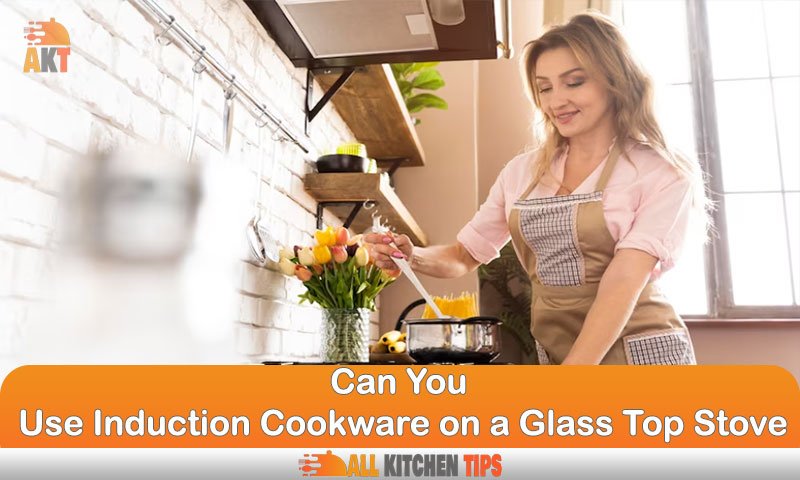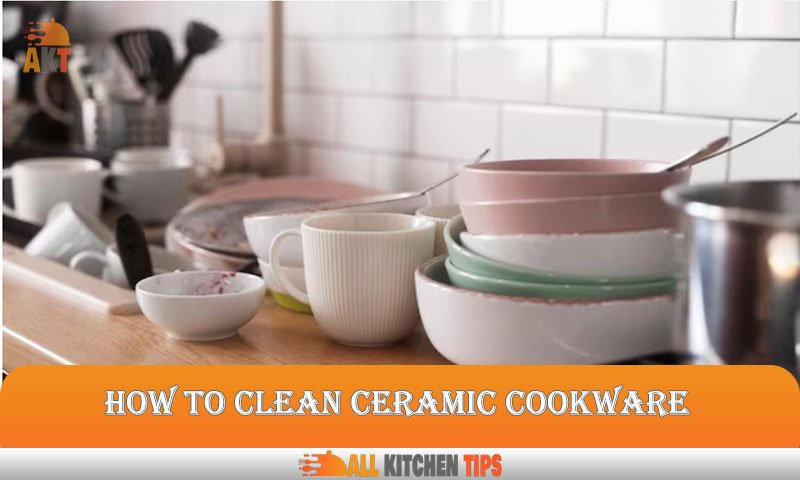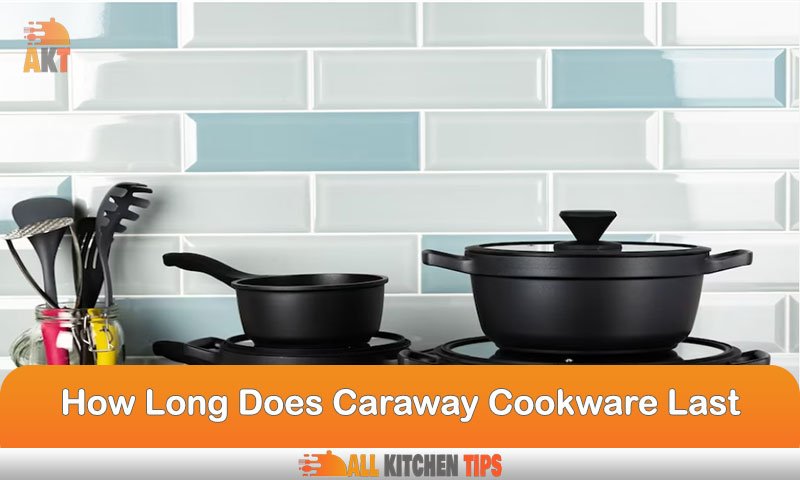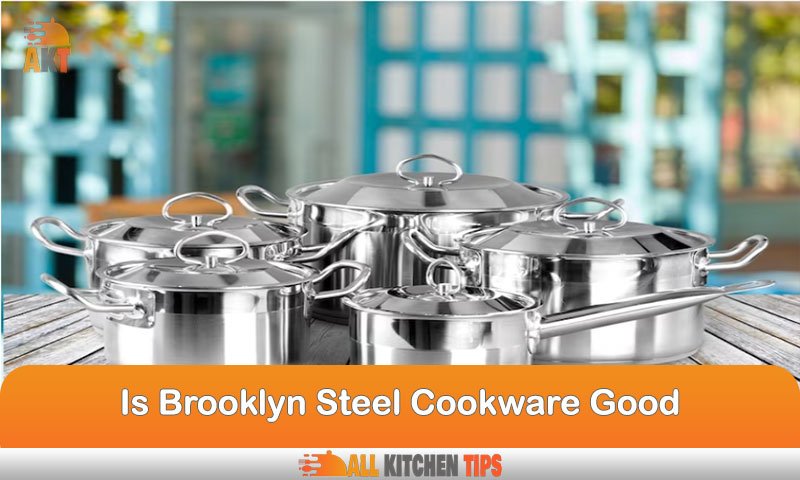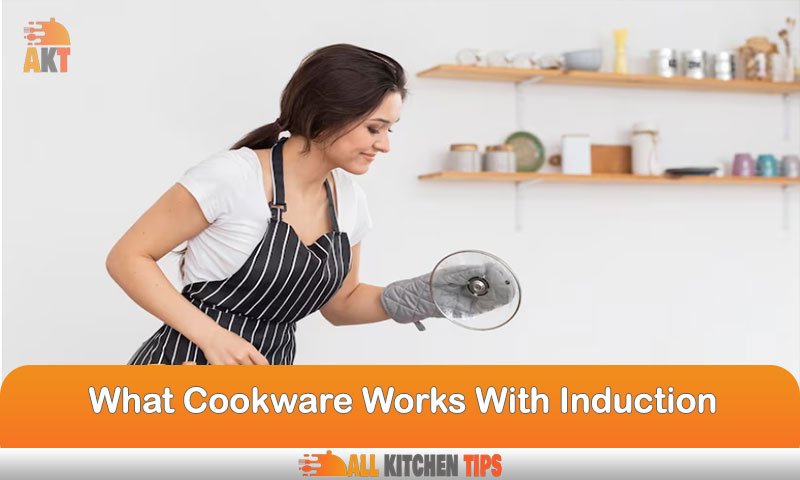Yes, you can use induction cookware on a glass-top stove. Are you in the market for a new cookware set?
Or maybe you just bought a glass-top stove and are wondering if your current induction cookware is compatible? The good news is that you can use your induction cookware on a glass-top stove. Induction cooking uses magnetic fields to heat the cookware instead of heating the surface of the stove, making it safe and energy-efficient.
However, it’s important to note that not all types of cookware are suitable for induction cooking. In this article, we’ll discuss the compatibility of induction cookware with glass-top stoves and provide some tips for selecting the best cookware for your kitchen.
Understanding Induction Cookware

Definition Of Induction Cookware
Induction cookware is specifically designed for induction stovetops that create a magnetic field when a current passes through a coil underneath the cooktop surface. Compared to conventional stovetops, the cooktop is quicker and more efficient because it directly heats the cookware.
Can You Use Induction Cookware On A Glass-top Stove?
If you are switching to a glass-top stove, it’s reasonable to wonder whether your current cookware will work. To avoid damage to your glass-top stove or your cookware, it’s essential to understand which cookware is safe to use.
We will talk specifically about whether you can use induction cookware on a glass-top stove.
The Difference Between Induction Cookware And Regular Cookware
The main difference between induction cookware and regular cookware is the type of material used. Induction cookware is made of ferromagnetic materials like cast iron or magnetized stainless steel, which can effectively conduct the magnetic charge from the induction cooktop.
Regular cookware, on the other hand, usually comes in different materials that might not work with induction cooking.
Why Is Induction Cookware Important For Safety On Glass-top Stoves?
Induction cookware is essential for safety on a glass-top stove for several reasons:
- Only cookware that is flat and can securely sit on the glass-top stove is safe for use.
- glass-top stoves generate an enormous amount of heat, and using the wrong cookware can cause it to crack, scratch, or even shatter.
- Induction cookware heats up quickly, allowing the cook to save energy and reduce cooking time.
- Using improper cookware can damage not only your cookware but also your stove. To avoid this, investing in induction cookware will help prolong the lifespan of your glass-top stove while providing an overall safer and more efficient cooking experience.
While regular cookware might work on an induction stove, it’s best to stick to using the proper induction cookware, especially if you’re cooking on a glass-top stove. This will ensure that your cooking experience is safe, efficient, and cost-effective in the long run.
Glass-top Stove Safety Features

Glass-top stoves have become increasingly popular in modern kitchens due to their sleek and elegant design. glass-top stoves also have improved safety features compared to traditional coil burners. Here are some of the key safety features:
- Heat sensors detect when the surface is too hot and automatically turn off the burner to prevent overheating.
- Child lock features that prevent children from accidentally turning on the stove.
- Residual heat indicators show when the burners are still hot even after being turned off.
- Automatic shut-off features that turn off the burners if no cookware is detected on the surface.
How glass-top Stove Safety Features Protect Against Cookware Damage And Prevent Injuries
Glass-top stove safety features provide an extra layer of protection to both the stove and cookware, preventing damage and injury. Here are some ways that safety features can help:
- With heat sensors, the stove will sense if cookware is too hot and will automatically turn off the burner to prevent overheating and the potential for shattered glass.
- Child lock features can prevent children from accidentally turning on the stove and touching hot surfaces, reducing the risk of burn injuries.
- Residual heat indicators show when the burner is still hot even after being turned off, preventing accidental burns or damage to countertops.
- Automatic shut-off features turn off the stove if no cookware is detected, preventing overheating and potential fires.
It is essential to have glass-top stove safety features to prevent accidents and protect both the stove and cookware. These features bring an added layer of protection and peace of mind when cooking in the kitchen.
Factors To Consider When Choosing Induction Cookware For Glass-top Stoves
Induction cooktops have become increasingly popular in recent years due to their efficiency, safety, and precision. However, choosing induction cookware for glass-top stoves can be daunting. Here are some factors to consider before making your selection.
What To Look For In Induction Cookware
The following checklist should be considered when choosing the best induction cookware for your glass-top stove:
- Compatibility: Not all cookware is compatible with induction stoves. Look for cookware with an induction-compatible base. Stainless steel and cast iron are the most popular materials for induction cookware.
- Size: Make sure the cookware fits the size of the glass-top stove and is not too big or small.
- Flat bottom: Make sure that the cookware has a flat bottom so that it can make contact with the glass surface of the stove.
- Quality: Choose high-quality cookware that is sturdy and built to last. Investing in high-quality cookware will save money in the long run.
- Heat distribution: Look for cookware that has even heat distribution, so that your food cooks evenly and thoroughly.
Understanding The Compatibility Of Induction Cookware With Glass-top Stoves
Consider the following when understanding the compatibility of induction cookware with glass-top stoves:
- Magnetic fields: Induction cooktops use magnetic fields to heat food and, therefore, require a certain type of cookware that is magnetic. Magnetic cookware, such as stainless steel or cast iron, is essential for induction cooking.
- glass-top stoves: glass-top stoves use a smooth surface and heating element beneath the glass to cook food. They are fragile compared to other types of stoves and can scratch easily. Using the wrong kind of cookware can scratch the surface and damage the stove.
The Importance Of Weight, Materials, And Design In Choosing Induction Cookware For Glass-top Stoves
The weight, materials, and design of induction cookware are critical considerations for glass-top stoves. Heavy cookware may scratch the surface of the stove, while light cookware may slide around while cooking. Consider cookware made from materials such as stainless steel, cast iron, and copper, which provide even heat distribution.
Additionally, consider the design of the cookware, particularly the handles. Choose cookware with heat-resistant handles that do not get hot while cooking.
Selecting induction cookware for glass-top stoves involves compatibility, size, quality, heat distribution, magnetic fields, glass-top stoves, weight, materials, and design. By considering these factors, you can choose the best induction cookware for your glass-top stove, which will provide efficient, safe, and precise cooking for years to come.
Safety Recommendations When Using Induction Cookware On Glass-top Stoves
Induction cookware has become quite popular in recent years, and many people wonder if they can use it on their glass-top stoves. The answer is yes, but there are important safety precautions to keep in mind. Here are some tips and recommendations for using induction cookware on glass-top stoves.
Precautions To Take When Using Induction Cookware On Glass-top Stoves
- Only use induction cookware that is specifically designed for use on a glass-top stove. Look for labels that say “induction compatible”, “magnetic”, or “ferromagnetic”.
- Check the bottom of your induction cookware to make sure it’s flat and not warped or dented, as this can cause scratches on the stove surface.
- Avoid dragging your induction cookware on the glass-top stove, as this can scratch the surface.
- Lift and place the cookware on the stove instead of sliding it around.
- Do not use cookware with copper or aluminum bases on glass-top stoves, as it can react with the surface and cause damage.
- Always turn off the induction cooktop before removing the cookware to prevent overheating.
Tips For Proper Use And Maintenance Of Induction Cookware
- Avoid using metal utensils on induction cookware, as they can scratch the surface. Instead, use silicone or wooden utensils.
- Use the recommended heat settings for your cookware to prevent damage to the surface.
- Always clean the cookware after each use, as burnt food or residue can cause scratches on the surface.
- Store your induction cookware carefully to prevent damage when not in use.
- Avoid stacking or piling up induction cookware, as this can cause damage to the surface.
Common Issues That Can Arise When Using Induction Cookware On Glass-top Stoves
- Cookware not heating up: Make sure that the cookware is properly placed on the induction cooktop’s surface and that the control panel is turned on.
- Cookware overheating: Reduce the heat setting of the cookware to prevent overheating.
- Cookware making a buzzing noise: This is normal and is caused by the electromagnetic field created by the induction cooktop. It does not indicate any malfunction.
- Error messages on induction cooktop: Refer to the manufacturer’s manual for troubleshooting and follow the recommended procedures.
Follow these safety recommendations and tips for using and maintaining induction cookware on glass-top stoves to ensure the longevity of your cookware and the safety of your cooking.
FAQ
Can Induction Cookware Be Used On Glass-top Stoves?
Yes, but they must be induction-compatible and have smooth, flat bottoms to ensure proper heat transfer.
Is It Safe To Use Induction Cookware On A Glass Top Stove?
Yes, it is safe as long as you handle the cookware properly and keeps the glass top clean and scratch-free.
Will Using Induction Cookware On My Glass Top Stove Damage It?
No, as long as you use the proper cookware and handle it carefully to prevent scratches or cracks on the glass top.
Conclusion
As we wrap up our discussion, it’s clear that using induction cookware on glass-top stoves is possible, but not without some considerations. It’s crucial to ensure that the cookware is compatible with induction stovetops and also has a flat and smooth bottom to avoid scratches on the glass surface.
Additionally, investing in high-quality cookware is essential for efficient and safe cooking. Choosing the right size of cookware for your stove is also important to prevent issues with overheating or uneven cooking. By following these guidelines, you can enjoy the benefits of using induction cookware on your glass-top stove.
With the convenience of induction cooking and the stylish look of a glass stovetop, it’s a winning combination for any modern kitchen.

